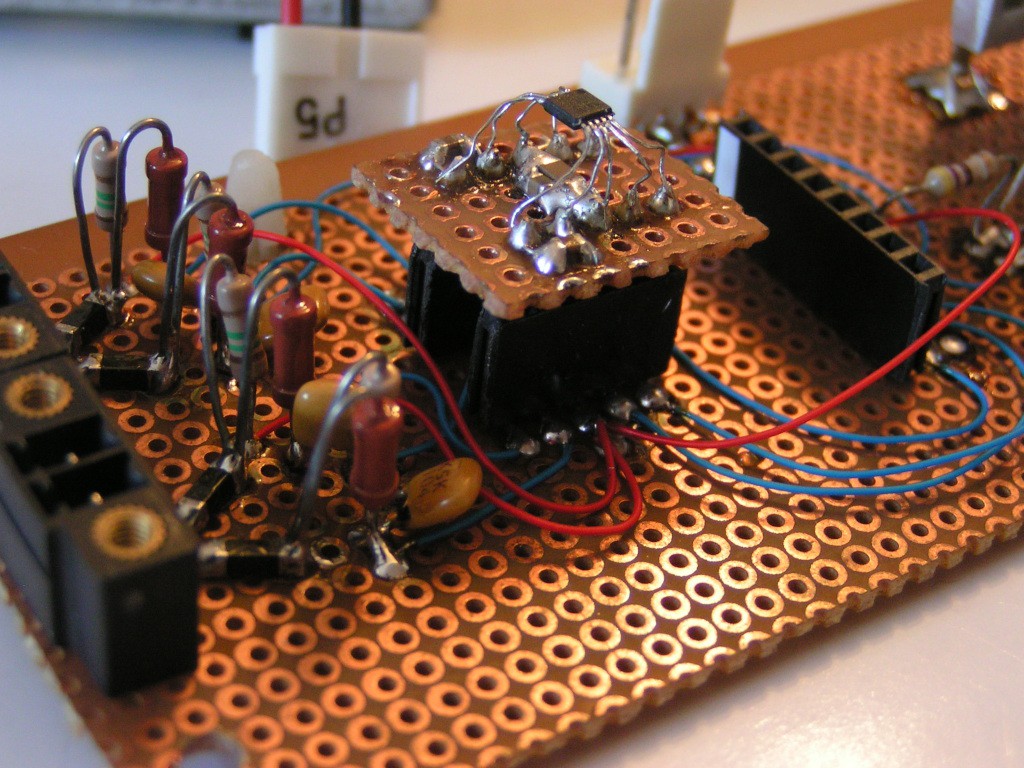First try to read the temperature was with a Texas Instrument 16 bits ADC, ADS1118, and an Arduino.
It was a failure, because ADS1118 proves to be very unreliable when used with the schematics from it's own datasheet. I fried 3 chips. Still don't know how, but after I looked at the TI evaluation board schematic for ADS1118, I saw insane electrostatic protections for this chip. I guess it was an electrostatic failure, and I swear I never burnt a chip before in this way.
This is King ADS1118 Failure, the 3rd:

So, I looked for another 16 bits ADC, possible with a temperature sensor on it, for the cold junction compensation of the thermocouple. A K type thermocouple gives about 10 mV at 250 °C (482 °F), so a 16 bits ADC was a request in order to avoid a low voltage DC analog amplifier circuit and it's offset and temperature drift problems.
It proves out that the Freescale dev board FRDM-KL25Z was just the right thing:
- it has a 16 bits ADC
- ADC have a nice feature of hardware averaging up to 32 ADC samples, very useful to filter the voltage noises
- temperature sensor on the chip, good for thermocouple cold junction compensation
- much faster and with more memory and processing power than Arduino
- pinout of the FRDM-KL25Z dev board is compatible with Arduino shields, so the same LCD with touchscreen can be used
- native USB
With all these hardware goodies, the only drawback is that I am not so familiar with Freescale software development tools, but I really like working with something new.
3D Printing AVR Arduino Art Audio Automation BeagleBone Bluetooth Cameras Clock Drones Environment Hardware IoT LED Medical Music Radio Raspberry Pi Remote Control Robotics Rockets Satellites Science Security Software Virtual Reality Wearables
 RoGeorge
RoGeorge
Discussions
Become a Hackaday.io Member
Create an account to leave a comment. Already have an account? Log In.